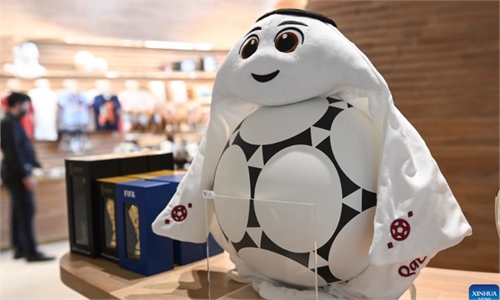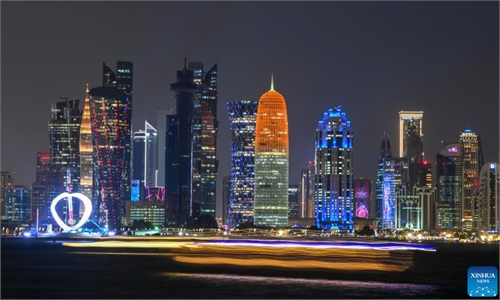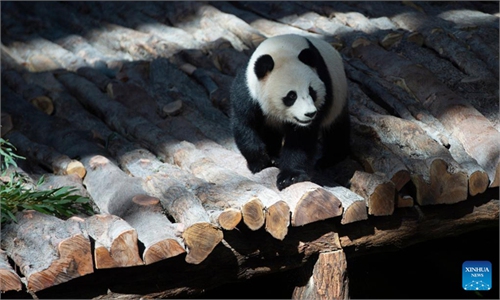Made-in-China to shine on World Cup stage, highlighting nation's pivotal position in global manufacturing industrial chain
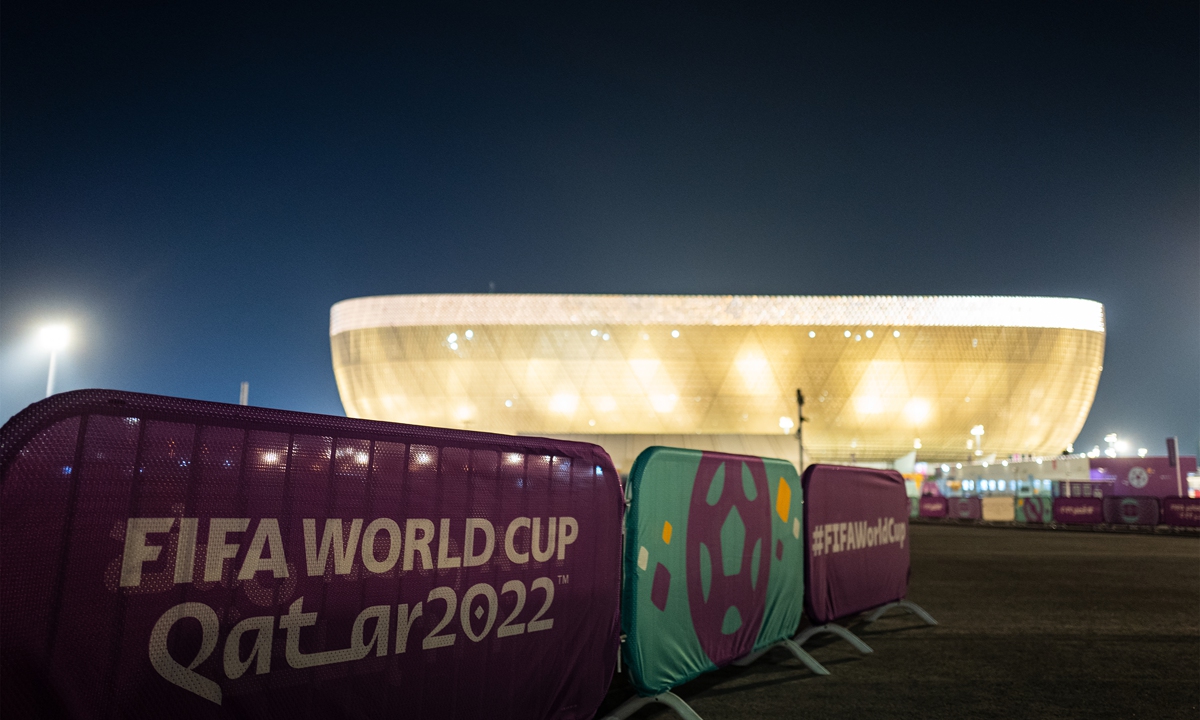
A general external view of Lusail Stadium on November 17, 2022 in Doha, Qatar, which will host the final ahead of the FIFA World Cup Qatar 2022. Photo: VCG
The FIFA World Cup Qatar 2022 is scheduled to kick off in Qatar on Sunday. Although the Chinese national football team won't be playing, Chinese manufacturing looks set to shine on the stage of the global football extravaganza.
China-made products ranging from buses to stadium and even air conditioners are well represented at the event, making it an excellent stage to showcase Chinese manufacturing, and experts said that it reflects China's pivotal position in the global manufacturing industrial chain and its resilience against the impact of the epidemic.
Yutong Bus, a leading global manufacturer of electric buses, told the Global Times on Friday that 1,500 of its buses will serve at the event. Of these, 888 electric buses will provide public transportation and shuttle services for officials, journalists and fans of various countries going from venue to venue.
Yutong vehicles will account for more than 30 percent of the total vehicles in operation during the World Cup period, and its electric vehicles will account for more than 25 percent the total vehicle available, the company said.
This will be the first time that new-energy buses are used as the main mode of transport in the World Cup, and it is also the first time that Chinese new-energy buses have made their debut in a major international sports event, according to the note the company sent to the Global Times.
Electrical appliance manufacturing giant Midea Group also told the Global Times on Friday that the 2,500 Midea air conditioners in 100 security check centers of the seven World Cup competition venues installed and maintained by the Qatar Midea distributor have been officially delivered to the organizing committee.
China's leading heavy equipment manufacturer SANY Group is also riding on the construction wave brought by the World Cup. The group said on its official WeChat account that nearly 100 pieces of Sany equipment of various types were used in the construction of all eight World Cup venues, including 15 truck cranes, five 220-ton and 600-ton all-terrain cranes, 30 large excavators, and five pump trucks during the five-year construction period.
Against the backdrop of the slowdown of industrial chains as a result of the worldwide epidemic, China's manufacturing is upgrading its industry, and has made positive contributions to the global industrial chain and the stability of the supply chain, Chen Jia, an independent international strategy analyst, told the Global Times on Friday.
"China's manufacturing sector is constantly speeding up greening and intellectualization, which has played a strategic role in smart manufacturing under the China-proposed Belt and Road Initiative," said Chen.
In addition, state-owned enterprises are also making contributions to the event. Lusail Stadium, the main venue for this year's World Cup, was constructed jointly by the China Railway Construction Corporation. Shaped like a date palm bowl and an enamel lantern, it will host the final, scheduled for December 18. It is the first time a Chinese company has built a World Cup venue. Lusail Stadium is featured on the new 10-riyal banknote of Qatar.
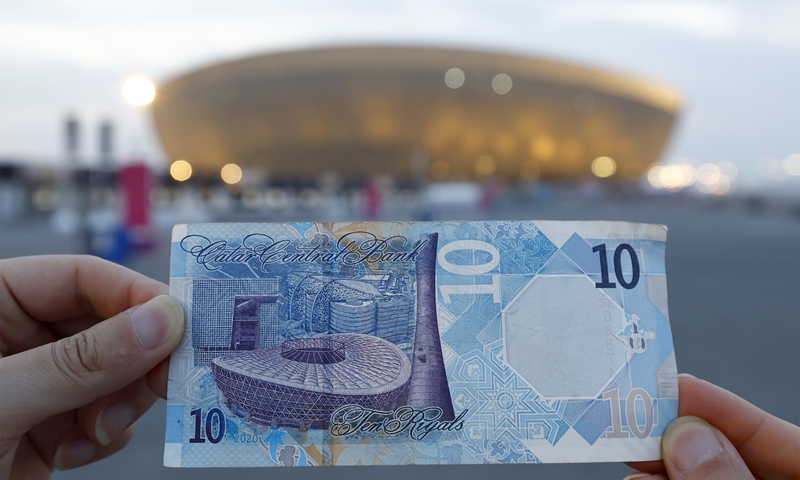
Lusail Stadium, the main venue for 2022 World Cup, is featured on the new 10-riyal banknote of Qatar. Chinese enterprise participated in the construction of the stadium. Photo: VCG
China's container giant China International Marine Containers was behind the construction of Qatar Stadium 974, which was assembled with 974 containers, so the stadium can be easily disassembled. It is also the first fully demountable stadium in the history of the FIFA World Cup.
Another feature of the stadium is that it allows natural wind to circulate inside it, so there is no need for an air-conditioning system, which can save a lot on energy costs.
The 800-megawatt Al Kharsaah photovoltaic (PV) power station in Qatar was put into operation on October 18. Generally contracted by Power Construction Corporation of China, the station is the first non-fossil fuel power station in the country and one of the largest PV power stations in the Middle East.
The company said there will be power supply before the World Cup and it will also strongly support Qatar's commitment to hosting a "carbon-neutral" World Cup.
What Chinese enterprises bring to the world are Chinese products and services that are full of world-leading technologies, and which have laid the foundation for Chinese manufacturing to enter the global high-end product market, Song Xiangqing, vice president of the Government Management Research Institute of Beijing Normal University and director of the Industrial Economy Research Center, told the Global Times on Friday.
"It is a global promotion of China's own brands, and it will help to increase global trust in Chinese manufacturing," he added.
In addition, according to the Yiwu Sports Goods Association, Yiwu manufacturing accounted for almost 70 percent of the market share of all the items to be used in Qatar, including participating countries' flags of the top 32 teams, trumpets and whistles for cheering, soccer balls, jerseys, scarves and World Cup decorations.
Many Chinese enterprises have made their global debut by sponsoring the World Cup. Four Chinese enterprises are in this year's official sponsor list - Wanda Group, Vivo, Mengniu Dairy and Hisense.
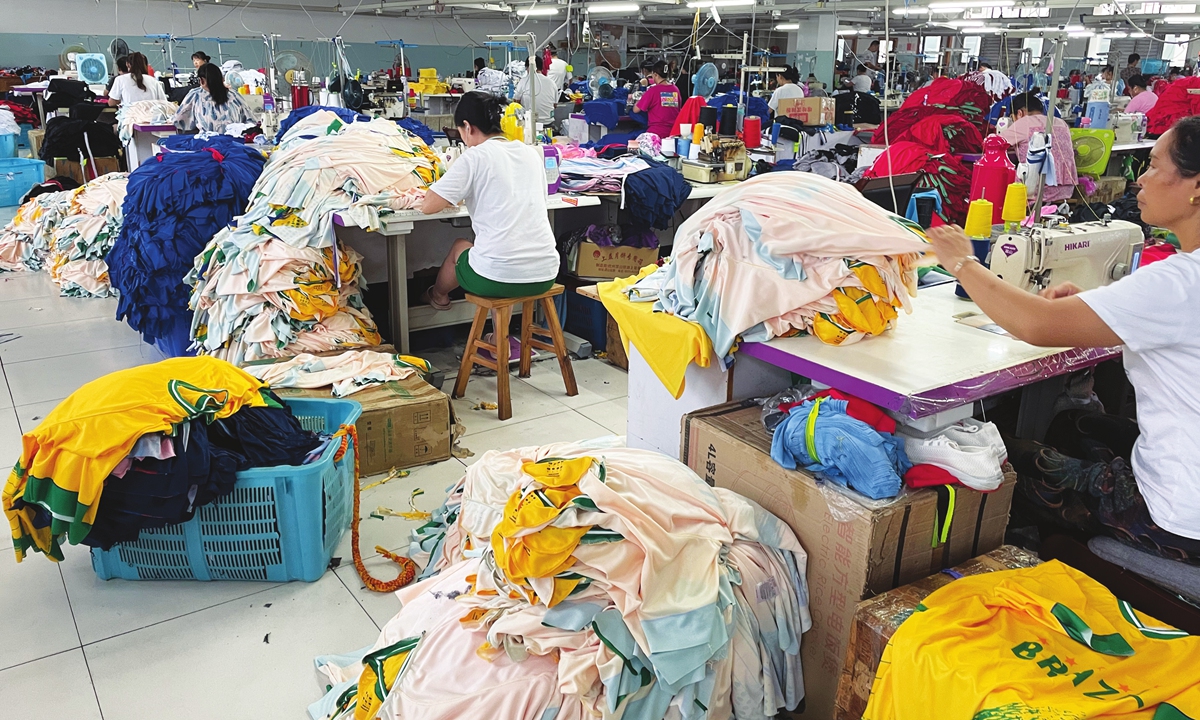
A workshop for soccer jersey in Yiwu,East China's Zhejiang Province. Photo: Courtesy of Yiwu Danas Import & Export Co
